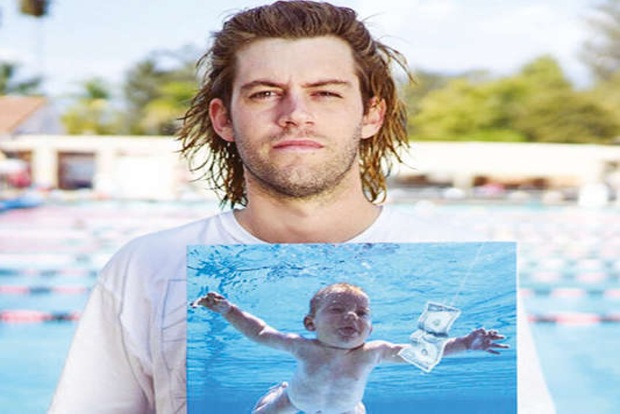Begin typing your search...
Reparations sought: Nirvana’s album cover did not promote child exploitation
Thirty years. That’s how long Spencer Elden said he put up with being associated with the naked swimming baby on the cover of Nirvana’s Nevermind album. A lot has changed in 30 years. For one, child abuse has been recognised around the world as a problem that needs to be taken seriously.

Chennai
No one today would ever think of putting a naked baby on show like that. But the same sensitivity wasn’t there 30 years ago. And so, Elden’s father allowed his then 4-month-old baby to be photographed in water, resulting in one of the most famous album covers in music history.
The members of Nirvana — then a relatively unknown band — had themselves tried to pose underwater, but the photo with the baby swimming after a dollar bill convinced them all: the band, the label, the photographer. Barely anyone was bothered by the fact that the baby’s genitals were visible in the photo.
Still, the record label suggested covering up the baby’s genitals. But front man Kurt Cobain supposedly was only ready to agree to this if they covered the area with a sticker that read, “If you’re offended by this, you must be a closet paedophile.”
But here’s the crux of the matter: I would never allege that any of those involved at the time felt feelings of sexual arousal in any form when they looked at the image.
Today, everything is different. There’s intense debate about if and how one should publish pictures of their children on Facebook. Will my son one day take me to task for the photo of him where he’s grinning so sweetly while sitting on the potty? Will my daughter, who can be seen as a topless 8-year-old splashing around the lake, later accuse me of letting her childish appearance be a way for my Facebook friends to get excited?
Children naturally have the right to complain, since when they’re young, they can’t object to being photographed, and they can’t tell their parents, “I don’t want you to post that photo of me!”
Baby Spencer Elden also couldn’t object. He’s doing it now. Of course this raises the question of why now. After all, over the past years Elden has accepted payment in exchange for letting himself be photographed — clothed — in the album cover pose. It would seem that Elden’s lawsuit is actually a way to go after money — just like on the Nevermind cover. The internet is buzzing over this question.
However, the real question here is a different one, one that wasn’t posed 30 years ago: Are you allowed to photograph naked children and then publish these photos? No — for today we know that many among us ogle such photos in inappropriate ways.
If Elden is now asking for damages, then he has every right to do so. The best thing about what’s going on right now is that a 30-year-old album cover has provided a new reason to talk about the sexual exploitation of children and to increase people’s sensitivity on the topic. With near daily news reports about child abuse, trafficking, non-consensual explicit material and the victims of such heinous exploitation, it’s a discussion that’s impossible to have too often.
This article was provided by Deutsche Welle
Visit news.dtnext.in to explore our interactive epaper!
Download the DT Next app for more exciting features!
Click here for iOS
Click here for Android
Next Story



